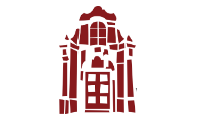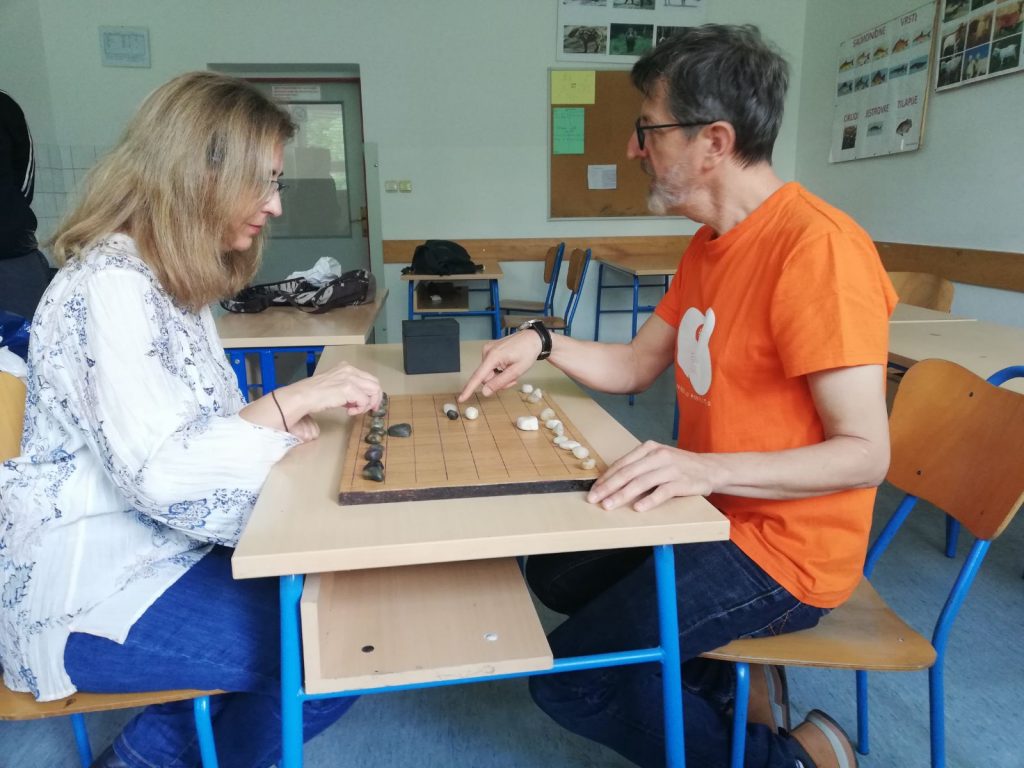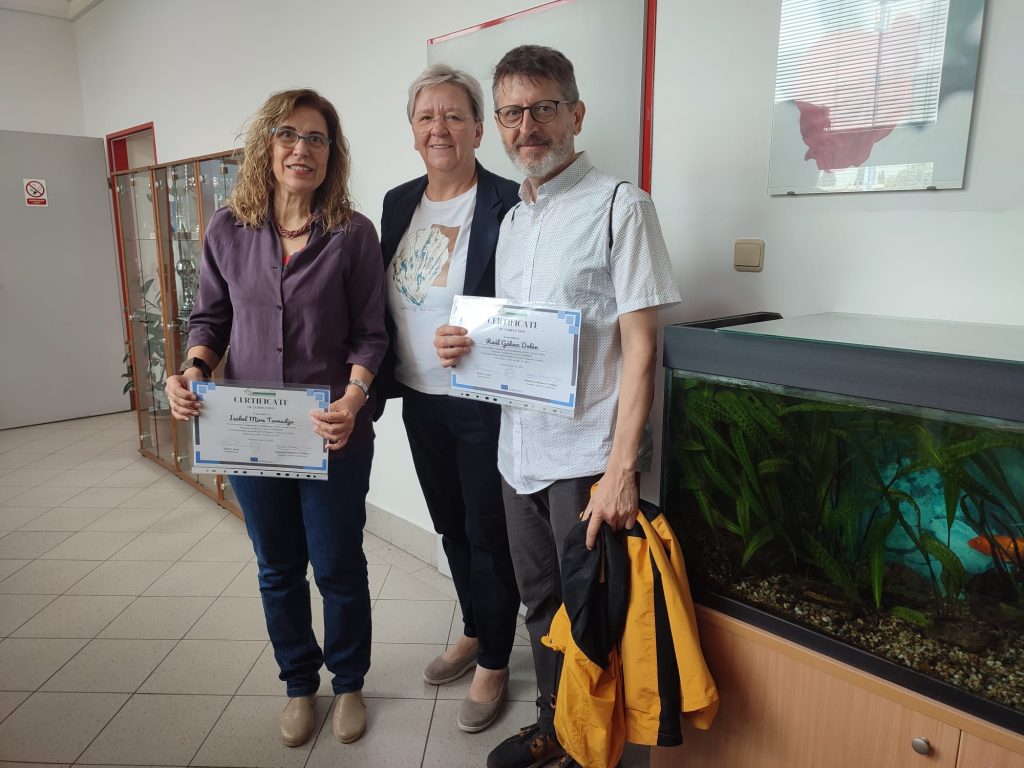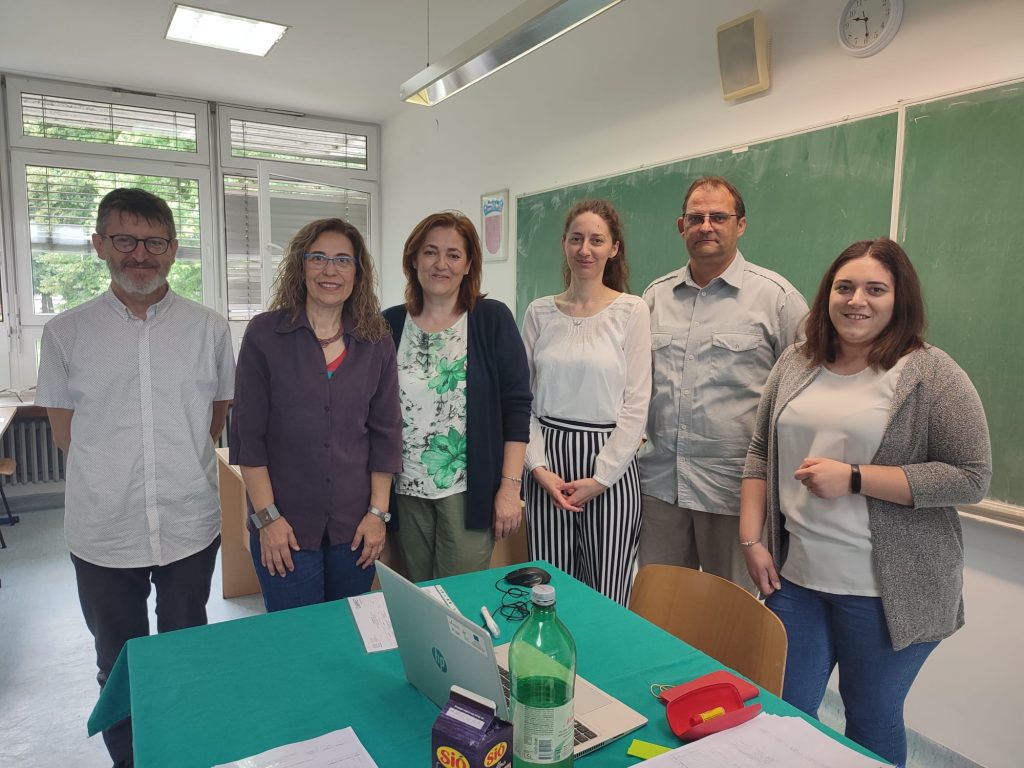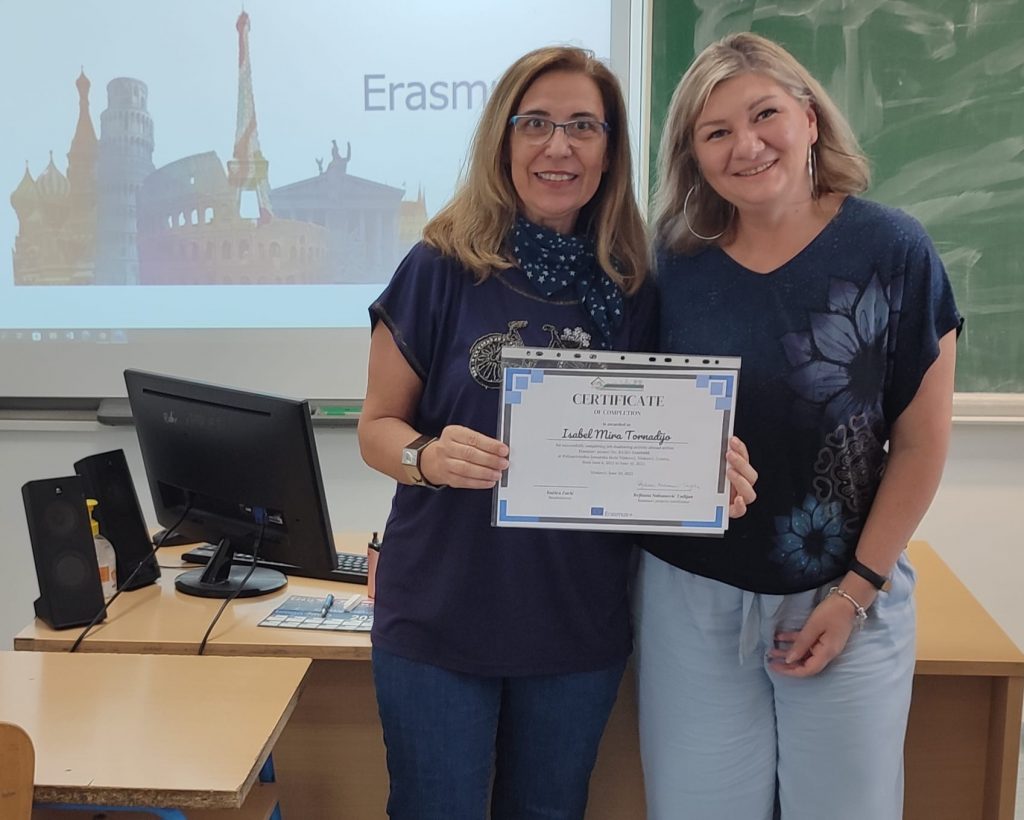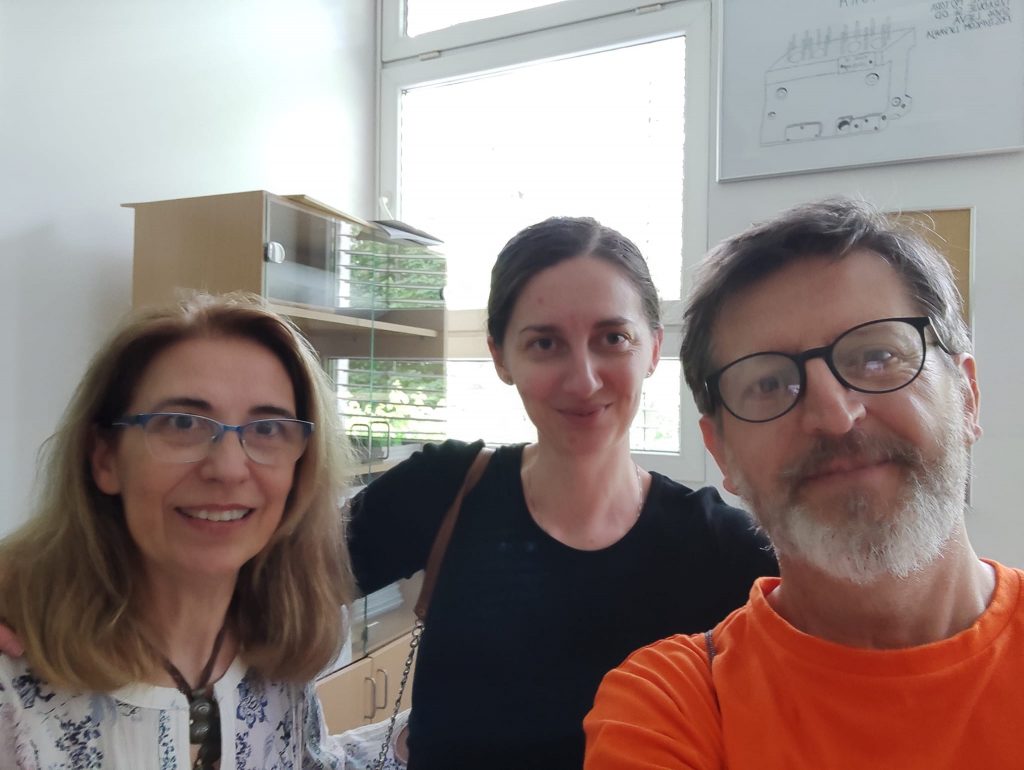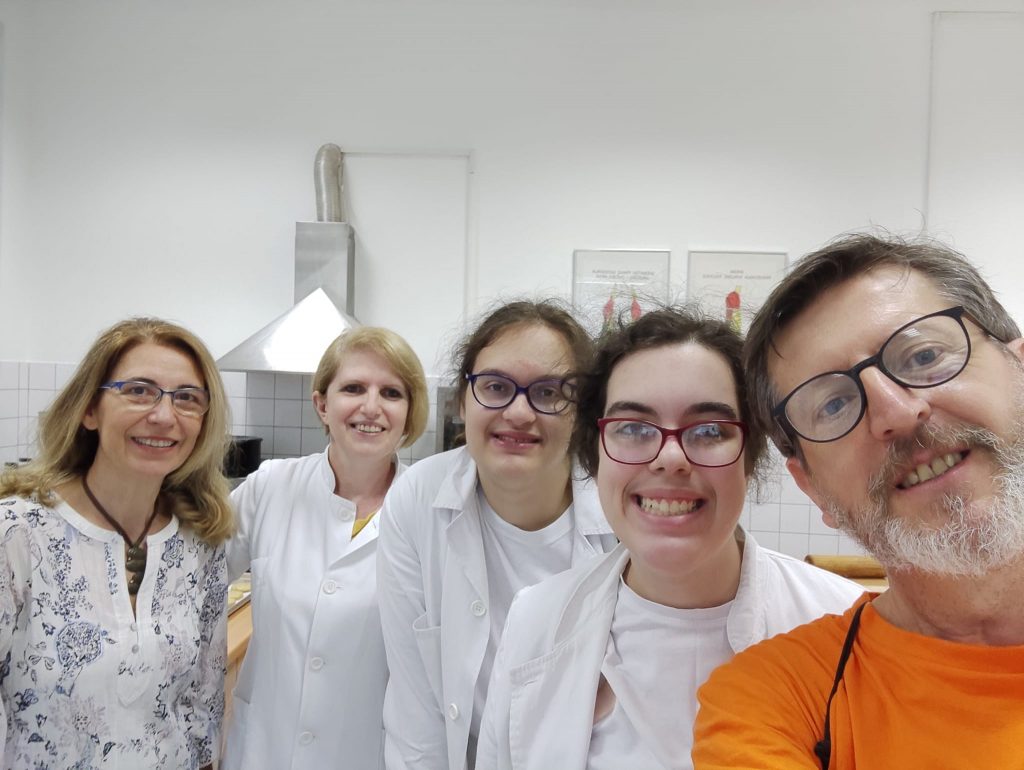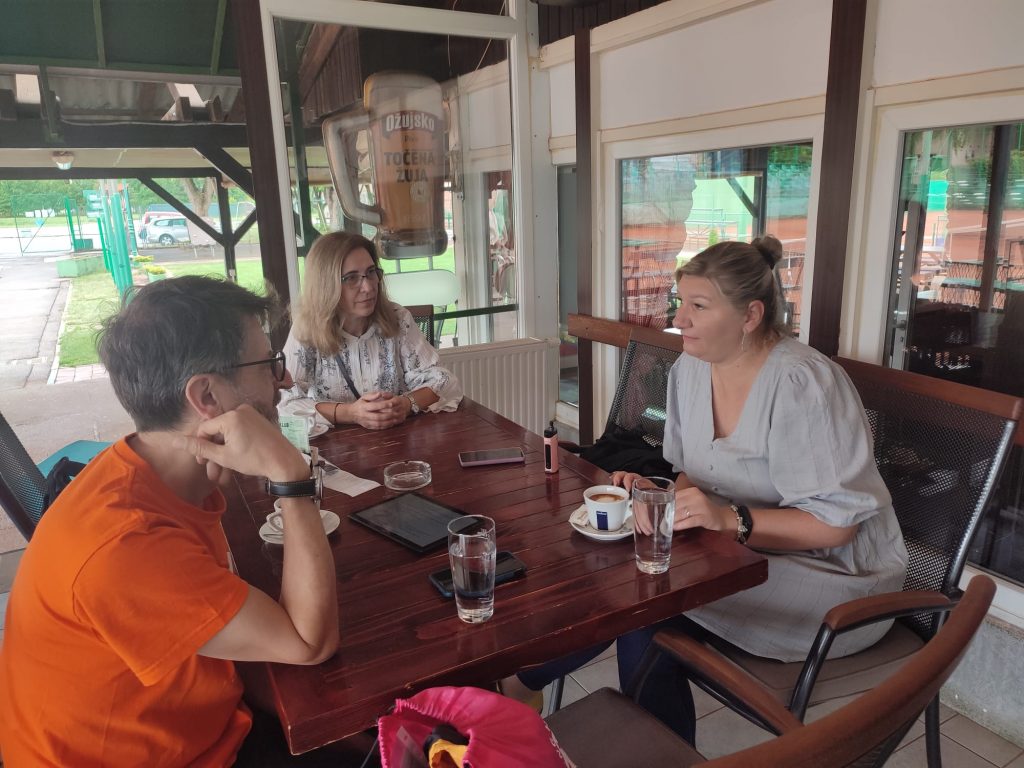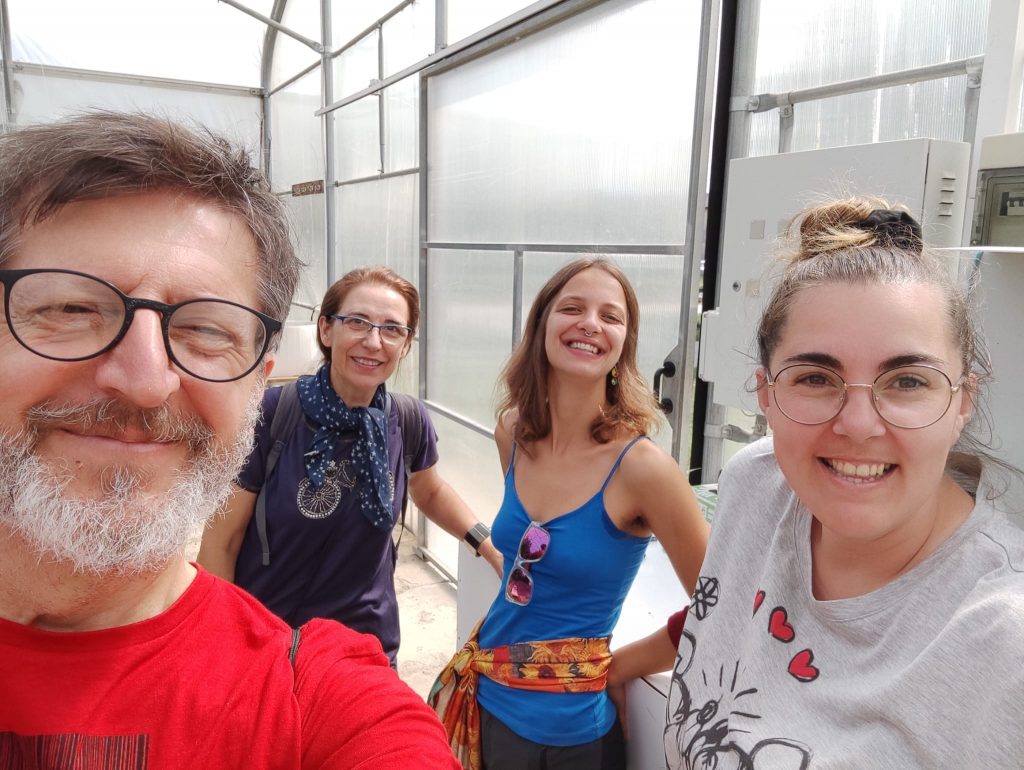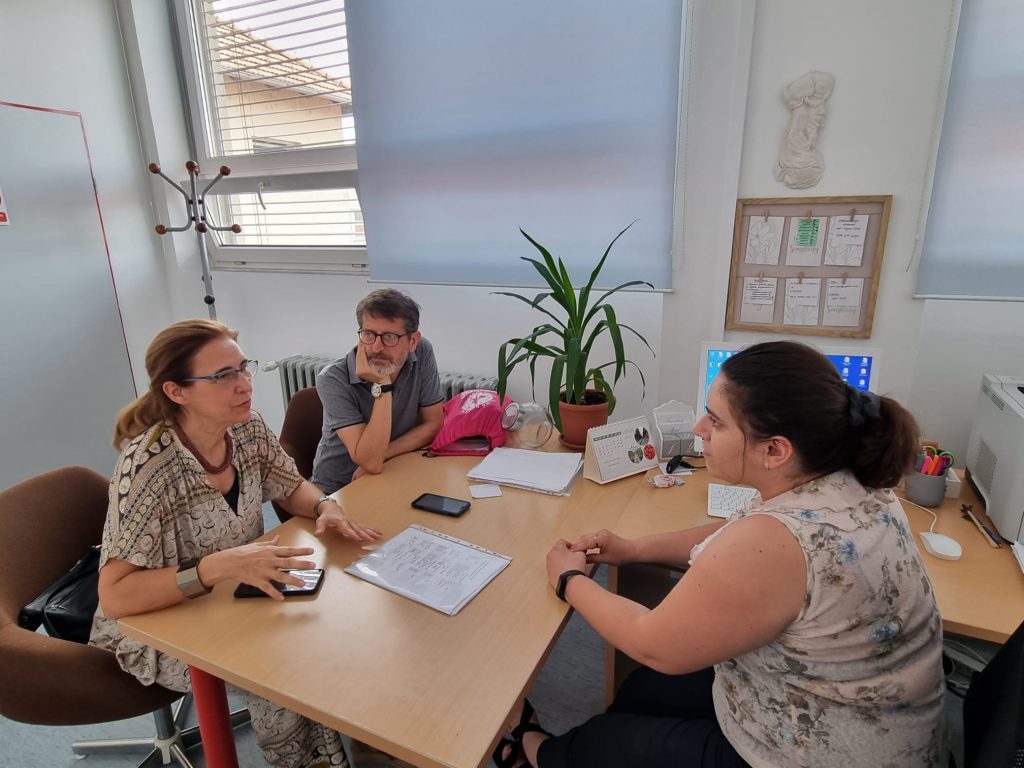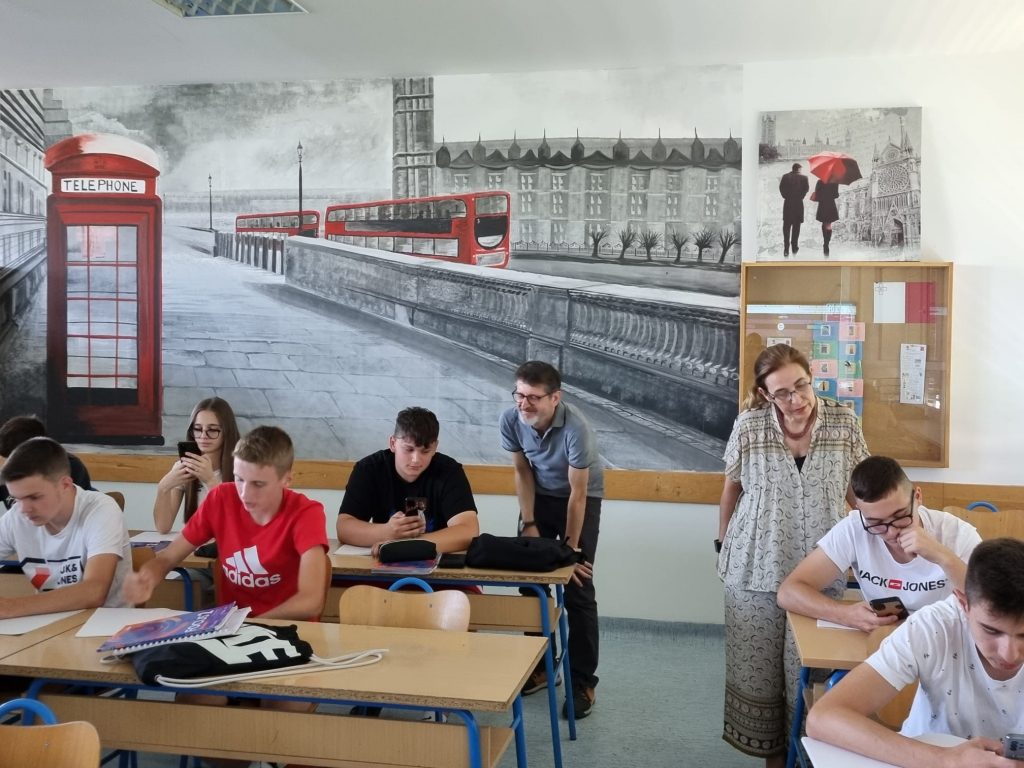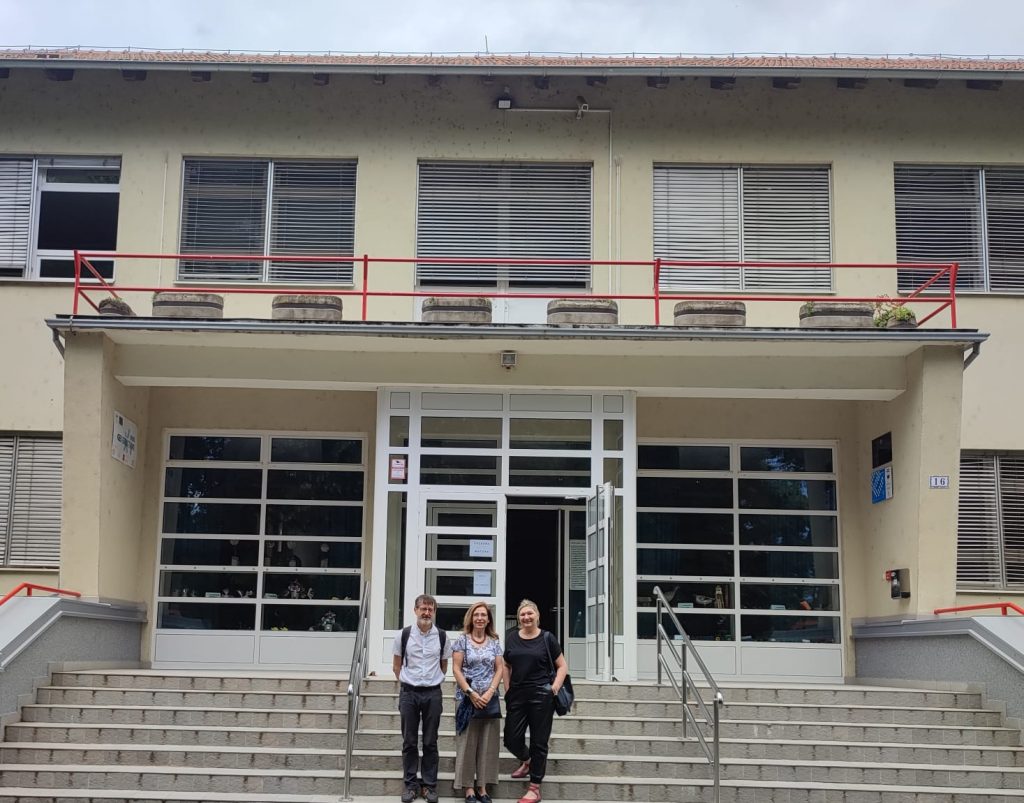ISABEL MIRA (HEAD TEACHERS and PHYSICS department) and I, RAUL GALVEZ (ARTS department)
carried out a mobility, within the centre’s Erasmus+ project, to Vinkovci, Croatia, where we were living the
day-to-day life of Poljoprivredno šumarska škola, Agricultural and forestry vocational training school 6th to 10th
June, 2022.
Poljoprivredno šumarska škola is located in the Croatian town of Vinkovci, Vukovar-Srijem County, which has
about 35,000 inhabitants. The families of the students of the centre are usually low-income and dedicate
themselves to agriculture, hunting and livestock, but few of them decide to enter the school since they have
the basic knowledge of the family tradition. The centre has hydroponic planting facilities in greenhouses,
seedbeds, vineyards, orchards, raised terraces, forestry facilities around the city, all with the aim of providing
the highest quality education for its students.
The school has students from ages 15 to 19: agrotechnician, forestry technician, agricultural technician in
phytopharmacy, agricultural machinery mechanic, florist, baker, butcher, farmer, gardener and also students
with special non-physical needs (baker and gardener).
Students complete their education with matura (leaving exam) or mature državna (state level exam) if they
want to enter university.
The goal of the school is to attract the majority of farmers in the area and provide them with skills that they can
use later, as well as business and market knowledge, in the areas where they are relevant, and adaptation to
new technological skills. They have 360 students and 34 groups, 15% of them with special needs. The
duration of the studies is 3 or 4 years depending on the specialty.
The management of the school is legally entrusted to a team of 7 members (2 faculty representatives, 1 family,
1 student and 3 representatives of the founders, including a secretary), headed by the director/principal Ružica
Zucić, B.Sc. The director does not have classes, responsible for organization, financing and administration and
she was a teacher 25 years before the role that she occupies.
Depending on the specialty they have more boys than girls, but in floristry they have more girls. In bakery and
phytopharmacy they are the same, in mechanics they are all boys… In agrotechnics they have 60% boys and
in forestry they have 80-90%. In butcher almost all boys.
● They do not have a fixed schedule, they generally work in two shifts.
● They do not have mediation groups, for interventions there is a school pedagogue and a psychologist.
● They teach English and German as a foreign language.
● They have wifi and projectors in almost every classroom, every teacher has a laptop. For
English/Math/Physics/Biology/Chemistry there are specialist classrooms as well as a kitchen for
bakers. In the school garden there are many machines and greenhouses with the latest technology and
where they make apple chips, juices, vinegar, wine, compotes and jams, cosmetic creams…
● They have 60% general education (English, Mathematics, History, Physics, Chemistry, Biology focused
on agriculture) and 40% vocational subjects.
● There are usually no behavior problems, in case of sanction they do social services.
Through our stay at the Poljoprivredno šumarska škola the following facts caught our attention:
in all the classrooms there is a sink and a sponge in a corner to clean the blackboard and the students do it
voluntarily, they enter class after the teacher, and they usually carry a mobile phone that they leave on the
table next to the blackboard in some subject, when they have to collect data dictated by the teacher, they write
in A5 notebooks, the counselor enters the classrooms to improve teaching, the use of an extracurricular
program (latrunculi game) to help students with grade problems, the great diversity of products they can
produce and of which they sell the surplus, the number of Erasmus projects that the coordinator can carry out,
at the time of the visit they have an Erasmus student from Valencia on a 3-month stay to whom we do a short
interview and another day she shows us the horticultural installations, Physics class there is a moment that
they dedicate to first aid and they bandage each other’s hand, there is an annual first aid contest.
During this time we were really welcomed by the entire Croatian school community who taught us the whole
system with all their love, we feel fully grateful.
Isabel Mira &
Raul Galvez
